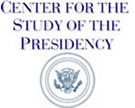The officer, Gen. C. Robert Kehler, who is in charge of the military’s Strategic Command, said these discussions were becoming ever more timely as American interests were challenged by “a number of very sophisticated actors who operate in cyberspace.”
But, he noted, “I believe that the United States still has an edge in cyberspace.”
As the Obama administration has focused on developing the nation’s capabilities for computer-network operations, civilian and military officials have been reluctant to discuss offensive digital capabilities — computerized attacks targeting an adversary’s networks — preferring instead to focus their public statements on advances in defending America’s own computer networks.
“I think we are looking at what an offensive component would be: What does that look like? What kind of options would we want to be able to offer?” General Kehler said. “I think that we have always said that there needs to be an offense and defense mix.”
But the types of doctrine that have existed for decades to shape military operations on land, at sea, in the air and in outer space do not yet exist at the same level of detail and sophistication for cyberspace — nor do the specific rules of engagement to guide individual digital operations.
“I do believe that without question, there needs to be a full conversation about doctrine and there needs to be a full conversation about rules of engagement,” he said. “There needs to be a full conversation about legal applications.”
General Kehler spoke one day after The New York Times reported that before the American-led airstrikes against Libya in March, the administration considered — but rejected — plans to disrupt Libya’s air-defense system in what officials said could have been the largest cyberoffensive ever begun. Instead, the campaign opened with attacks by cruise missiles and bombs.
The proposal was rejected because of doubts that such a complex operation could be developed and carried out quickly enough to save the rebel city of Benghazi, which was then threatened by troops loyal to Col. Muammar el-Qaddafi.
But the deliberations also spawned a host of legal questions that were put aside without resolution but will arise the next time such an operation is considered.
Among them was whether ordering a purely computer-based attack on Libya — an operation that would not involve the introduction of combat forces into Libyan territory or airspace — would trigger domestic legal restrictions on war-making by the executive branch.
General Kehler’s Strategic Command is the headquarters responsible for overseeing the military’s operations in cyberspace; the bulk of the work, and day-to-day attention to this emerging domain of warfare, falls to a subordinate headquarters, the military’s new Cyber Command.
In a breakfast meeting with reporters, General Kehler noted that a number of defensive missions that were well understood by other parts of the military might cross the line into offensive actions when applied to the digital domain.
For example, officials say that the United States needs to maintain “active defenses” in cyberspace, a concept that seeks to identify and even neutralize threats before they hit a Defense Department network.
General Kehler noted that the concept of forward defenses was well understood by ship captains at sea and ground commanders in combat, but that it was not yet clear how to apply them in the digital world.
“Is active defense really offensive in cyberspace?” General Kehler asked. “I would argue that it really is not. It does not have to be, for sure. But those are the issues that we are trying to work our way through.”






